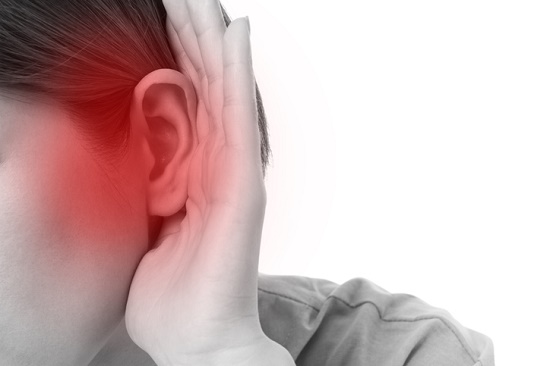
Hearing loss is solely an issue for older people, right?
Not quite. While it’s true that your odds of acquiring hearing loss increase with age, you can, in fact, develop hearing loss at any age.
As reported by the NIDCD, 26 million Americans age 20 to 69 have high-frequency hearing loss from being exposed to loud sound at work and during leisure activities. And that includes 1 in 14 generation Xers, age 29-40, who already have hearing loss.
Considering hearing loss can strike at any age, it’s important to understand the signs as they’re frequently subtle and difficult to notice.
Below are eight silent signs of hearing loss that should prompt you to get a hearing test.
1. Ringing in the ears
Have you ever come home from a booming concert and noticed a ringing or humming in your ears?
If that’s the case, that means you’ve damaged the nerve cells of hearing in your inner ear. If it’s only occurred a couple of times, the damage is more than likely short-term and minor. However, continued exposure or one-time direct exposure to very loud sounds could create irreparable damage and hearing loss.
If the ringing in your ears continues, you should schedule a hearing test as this is one of the first signs of hearing problems. And if passing up future concerts is not a viable alternative for you, your hearing consultant can help you avoid additional damage with individualized earplugs.
2. Balance issues
Your hearing and balance are intricately connected. In fact, a major component of your ability to remain balanced is the result of sophisticated structures within the inner ear.
If you find that you’ve been more clumsy as of late, the problem may in fact be with your ears. In fact, a study by Johns Hopkins University found that individuals with hearing loss were three times more likely to have a history of falling, depending on the degree of hearing loss.
3. Memory impairment
Your short-term or working memory is rather limited, able to deal with only a few items for a short time period. That indicates that you don’t have time to catch up on missed words during fast-moving conversations.
With hearing loss, speech comprehension suffers as you can entirely miss or misconstrue the speaker’s words or message. This manifests later when you can’t recollect important information.
4. Painful sounds
When you lose your hearing, you may become exceedingly sensitive to select sounds, to the point where they cause pain or discomfort.
The technical term for this is hyperacusis, and you’ll want to consult with a hearing professional if the problem persists or becomes intolerable.
5. Listening exhaustion
Imagine spending the day trying to decipher meaning from half-heard words and sentences and replying to questions you didn’t completely hear. That degree of attention can wear you out quickly.
If you notice you’re far too fatigued at the end of the day, hearing loss may be to blame.
6. Difficulty hearing in groups
Early stage hearing loss typically doesn’t present itself during person-to-person conversations or in tranquil environments. More commonly, hearing loss only becomes a problem in the presence of background noise or in group settings.
7. Not hearing alarms or calls
Hearing loss is very often tough to notice or detect as it grows progressively each year. Oftentimes, friends and family members will take note of the hearing loss prior to the person suffering from it does.
However, there are some warning signs you can watch for, including the inability to hear alarms or phone calls, the doorbell, or the television at normal volume.
8. Difficulty hearing movie dialogue
With hearing loss, you may have particular difficulty hearing the conversations in tv shows and movies. That’s because most cases of hearing loss affect high-frequency sounds to the largest degree, and speech is a high-frequency sound.
It’s never too early to look after your hearing health. If you experience any of these symptoms, schedule a consultation with your local hearing care professional.